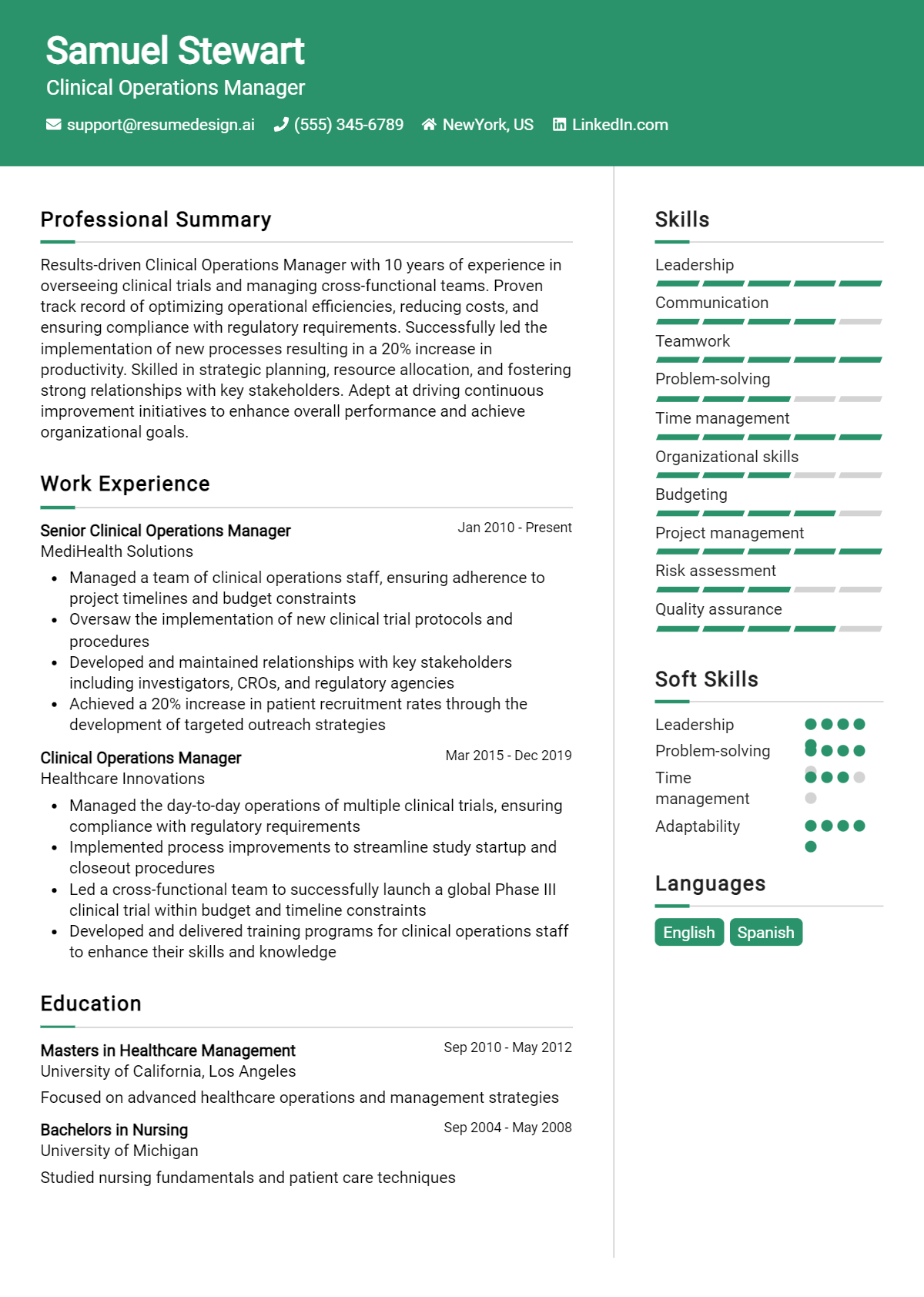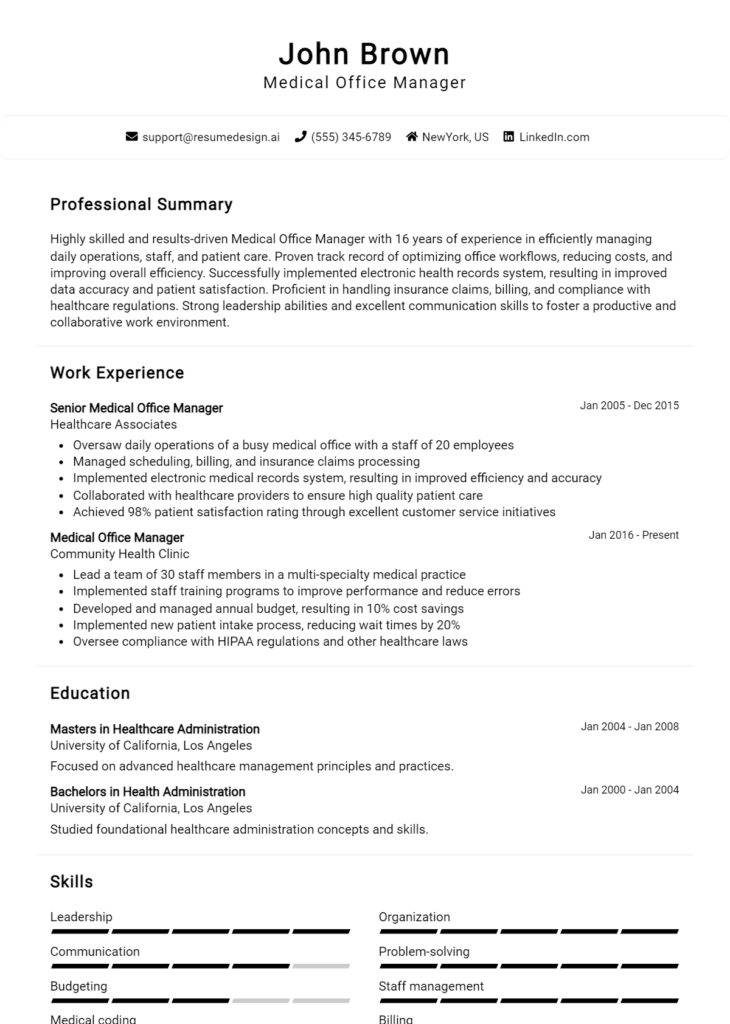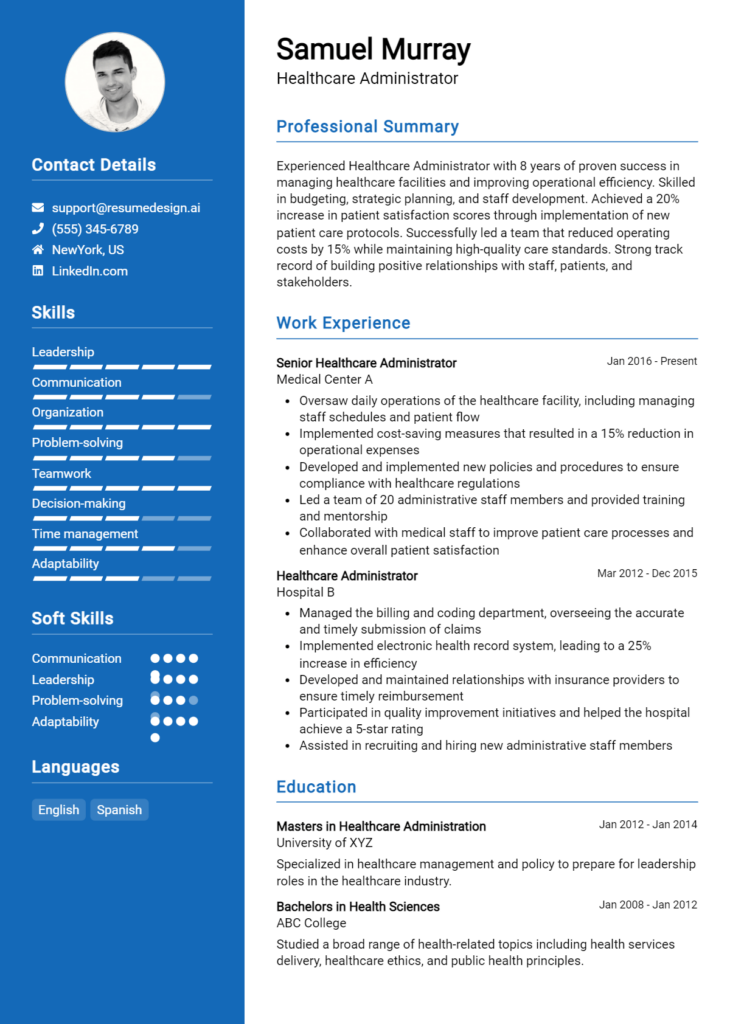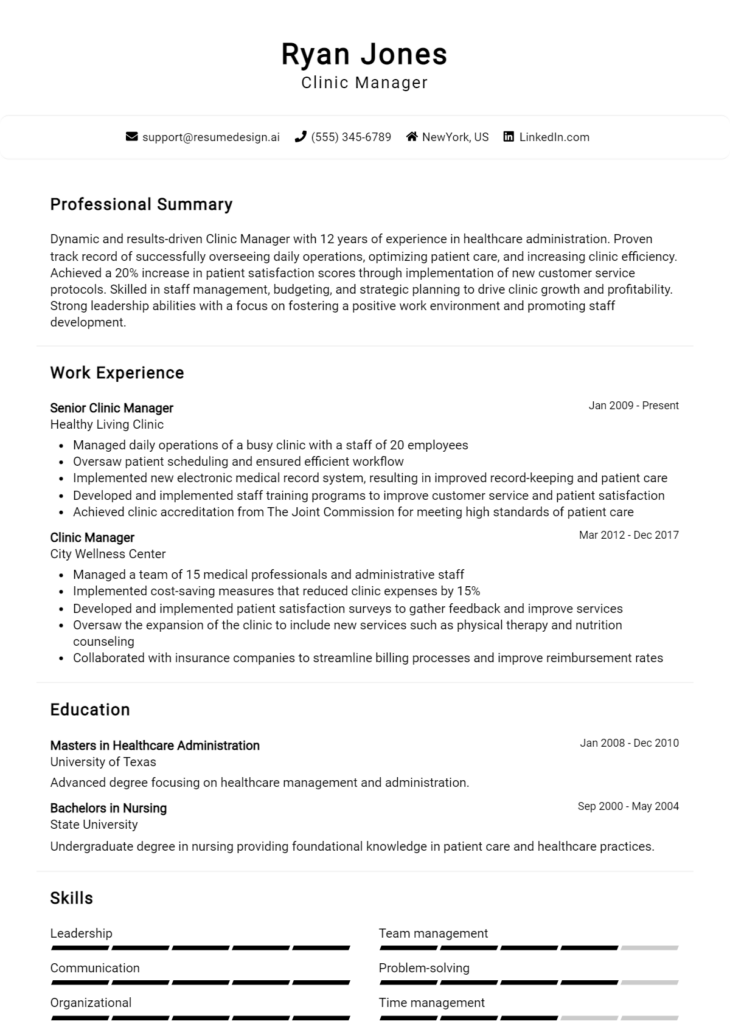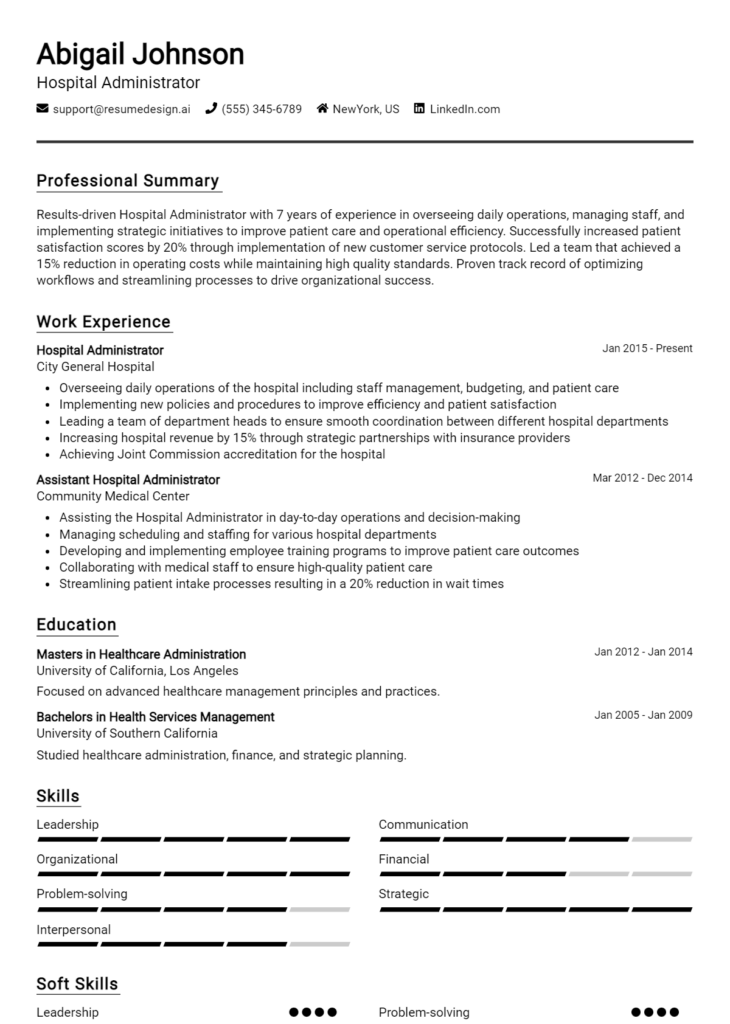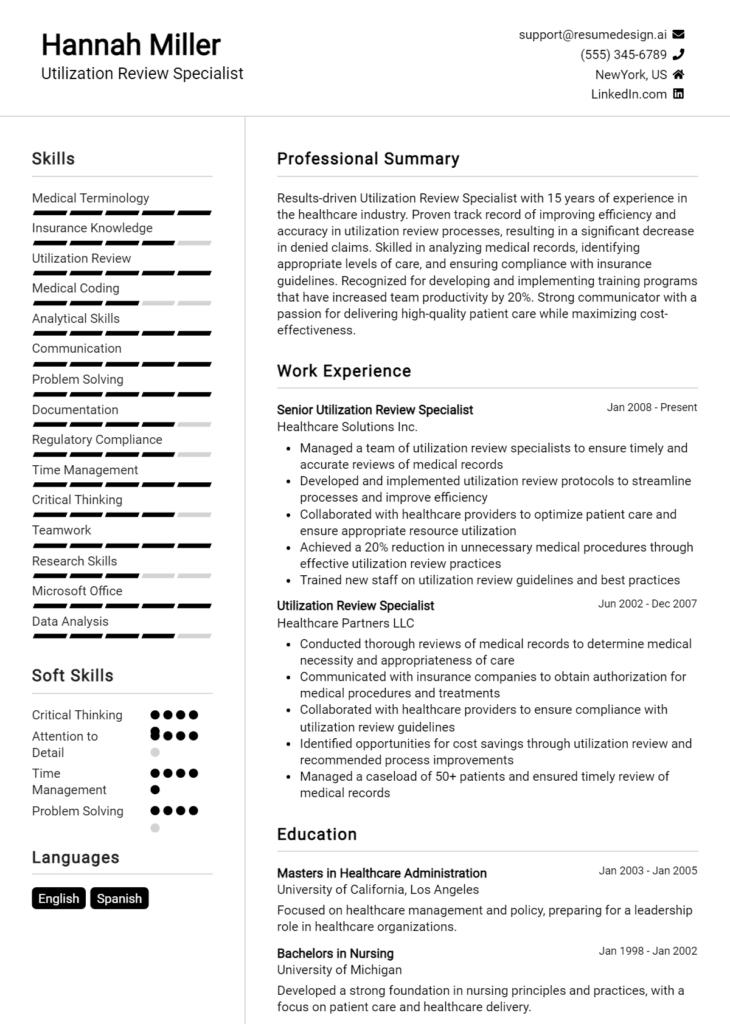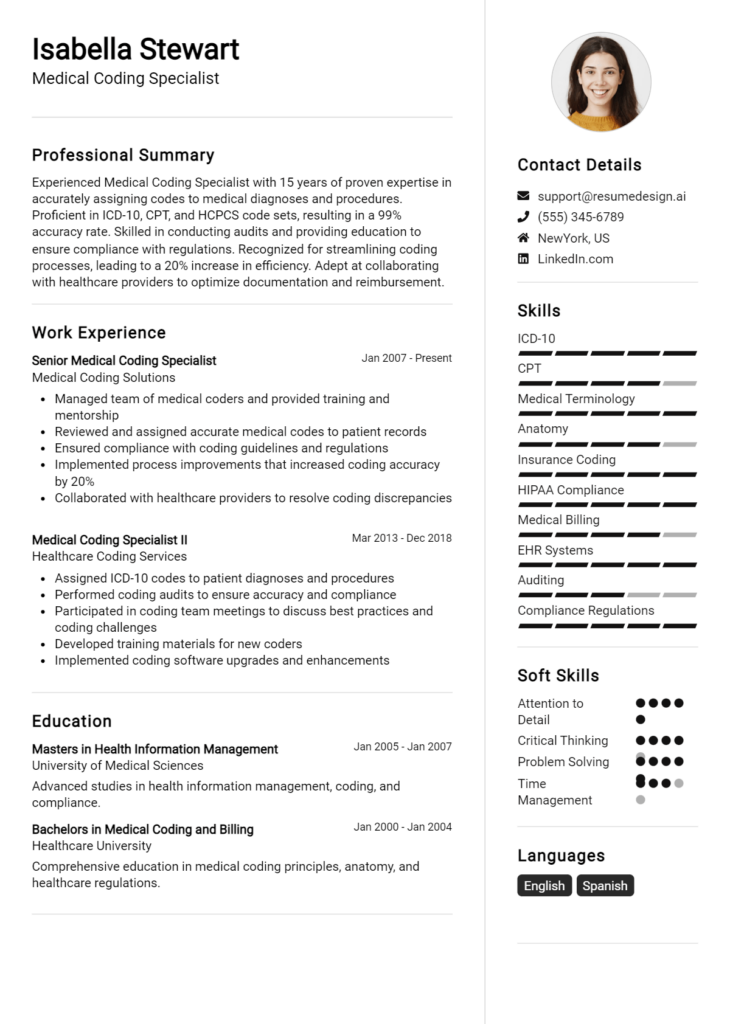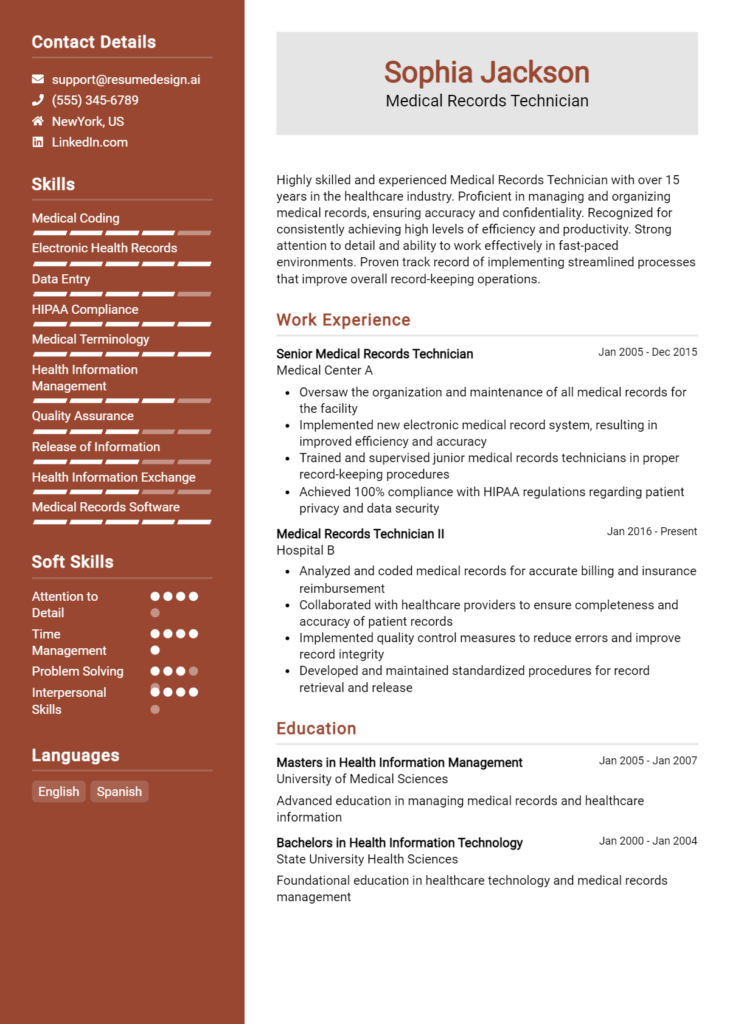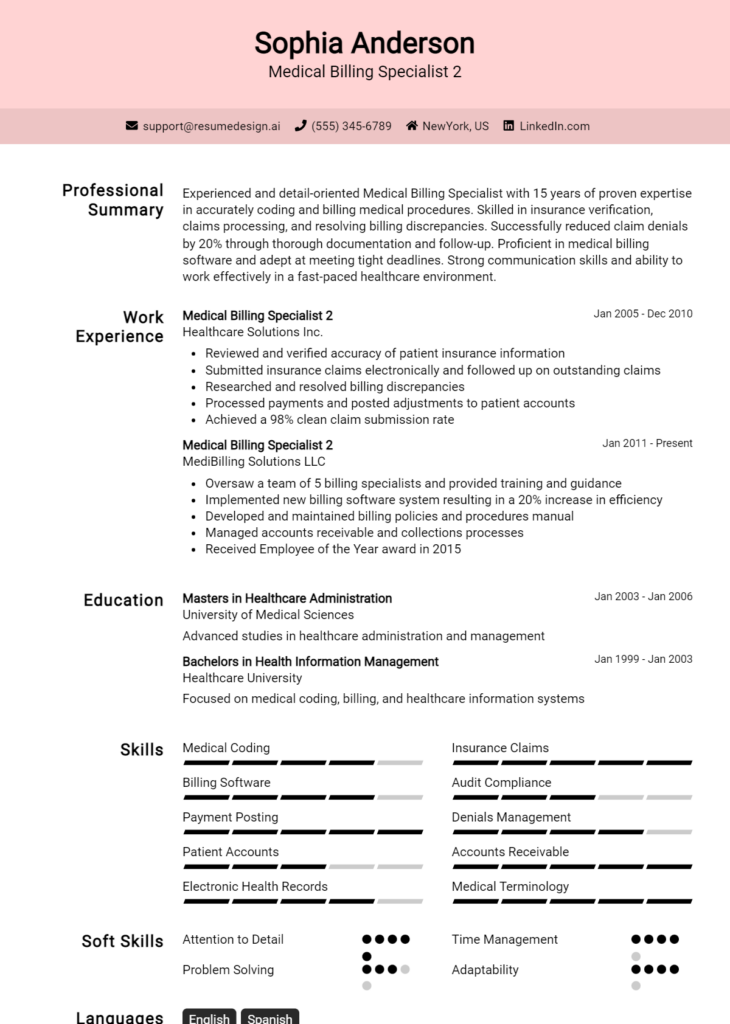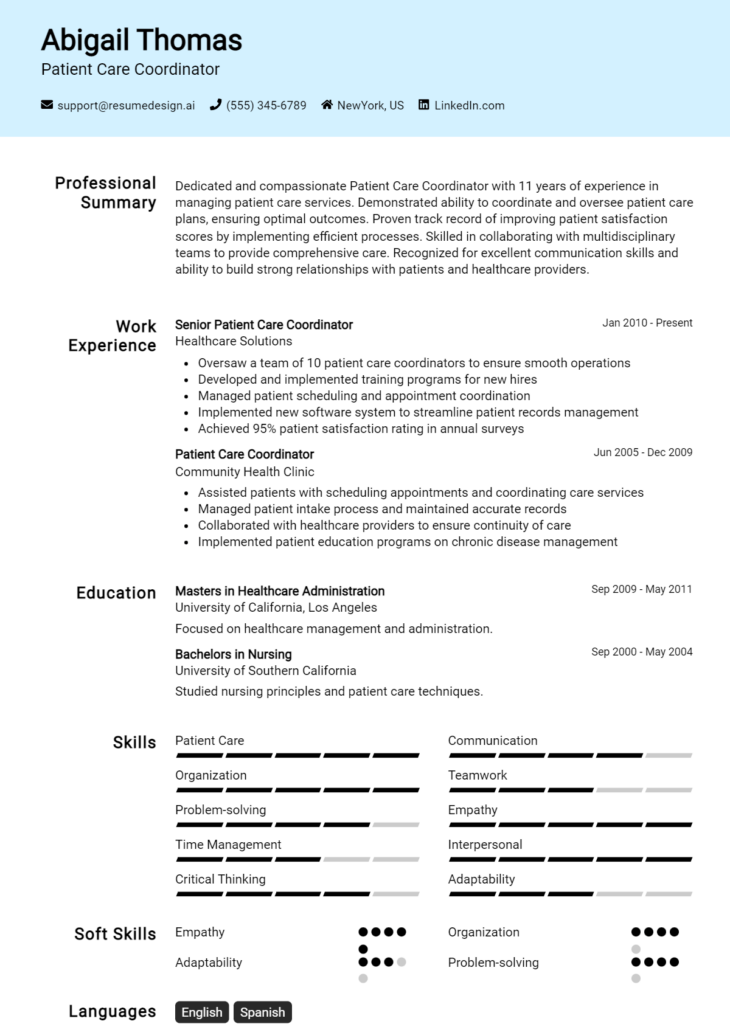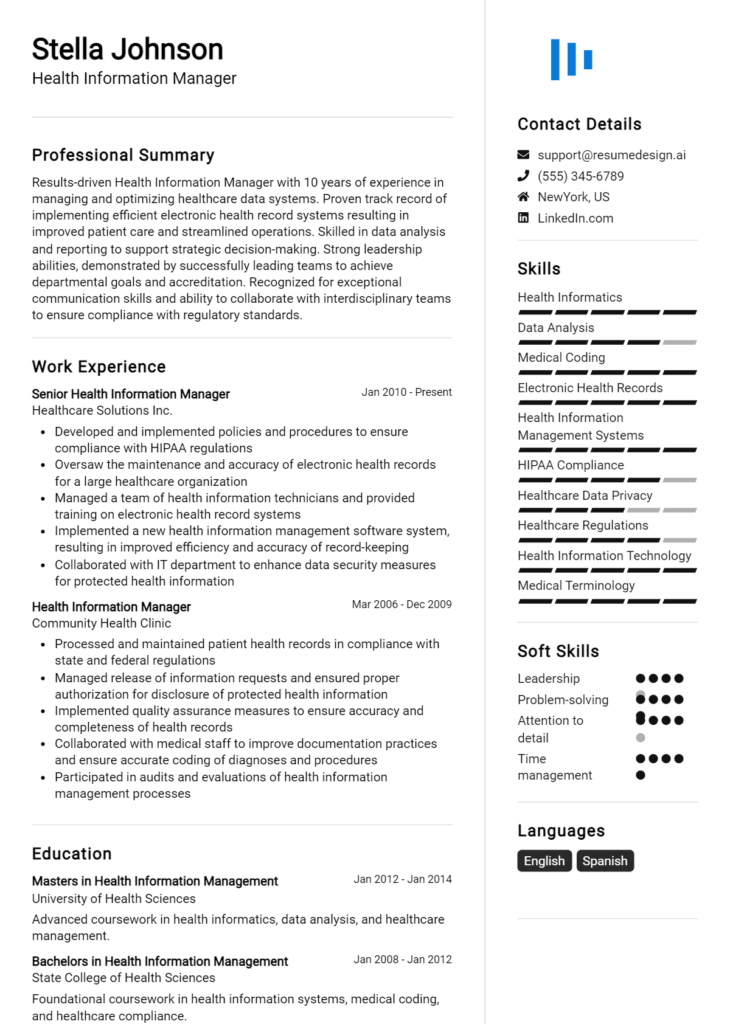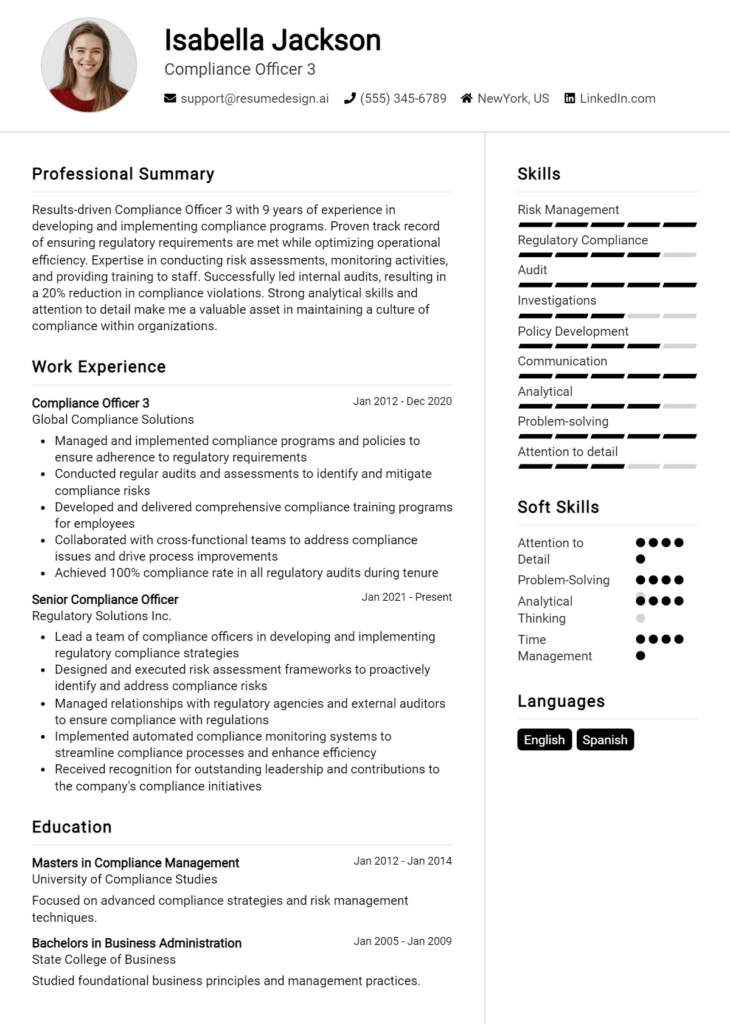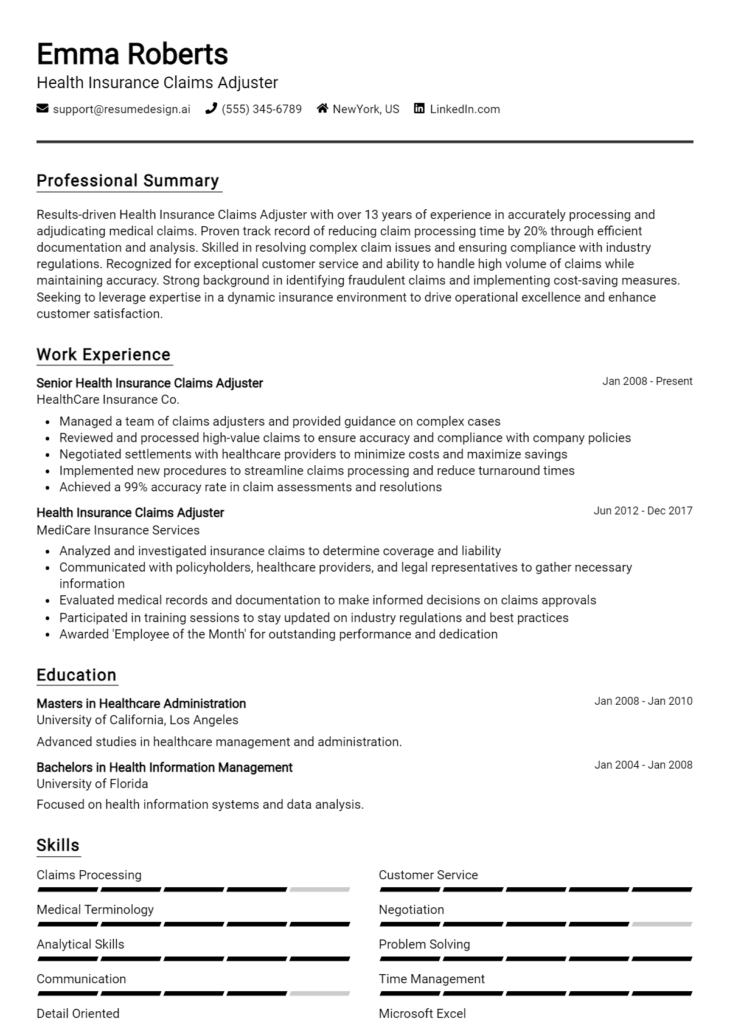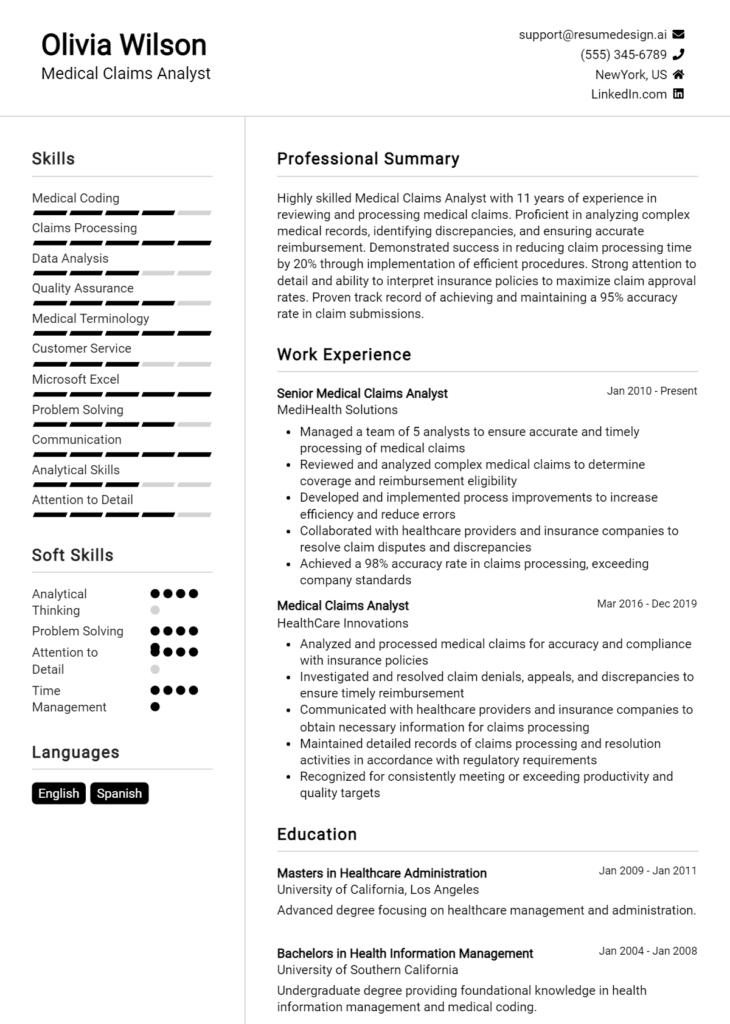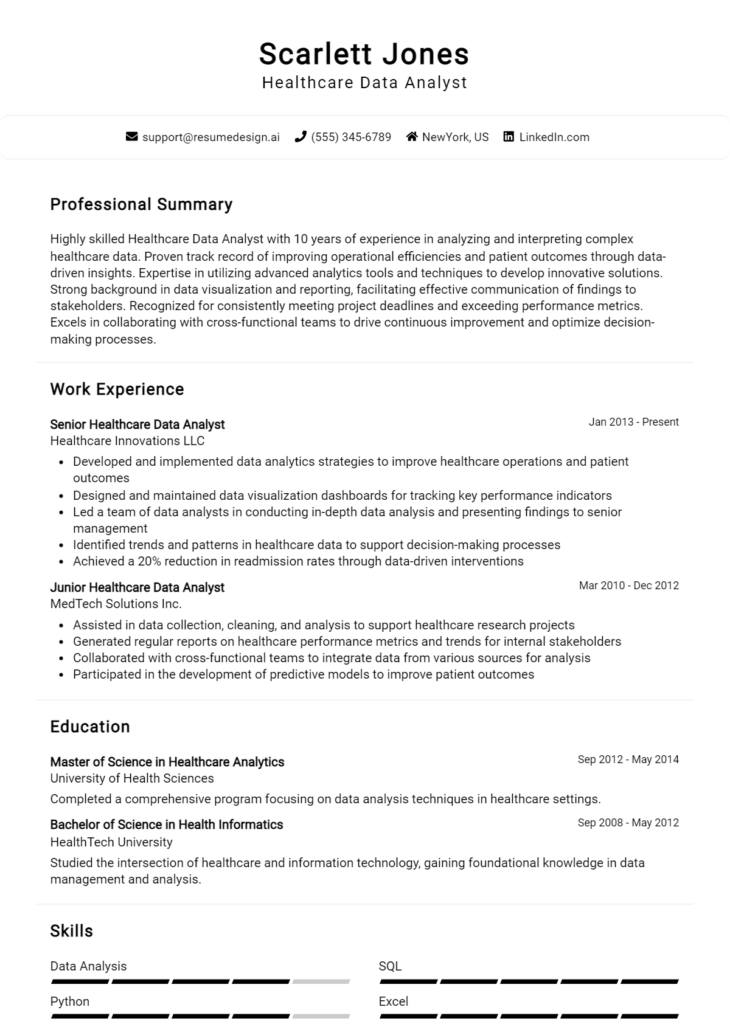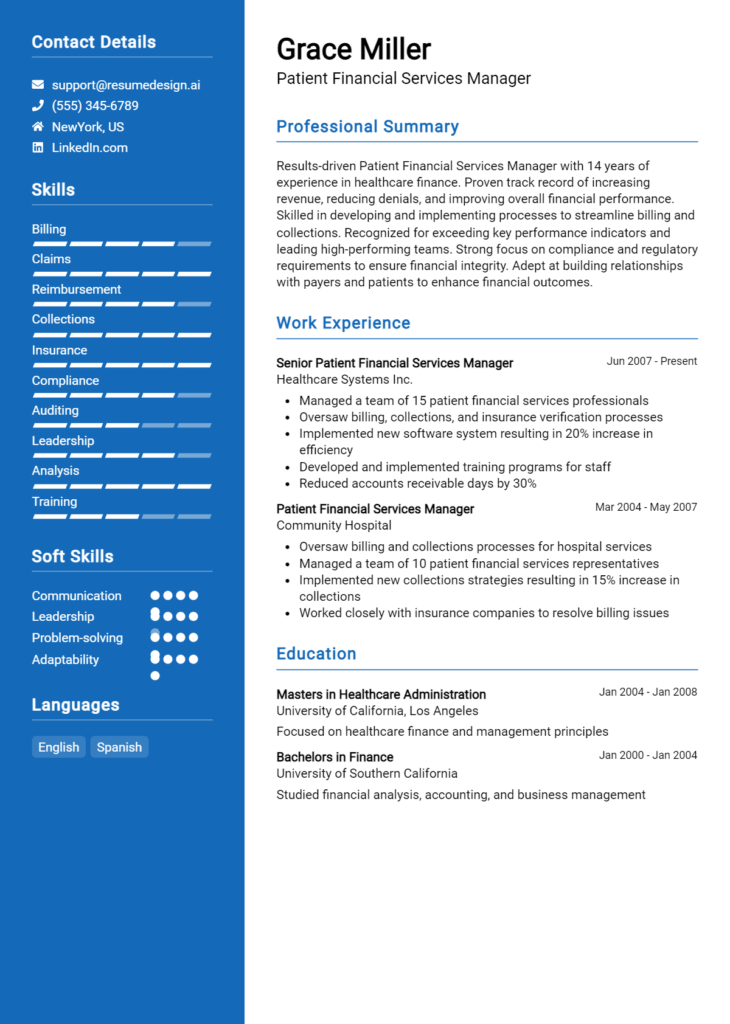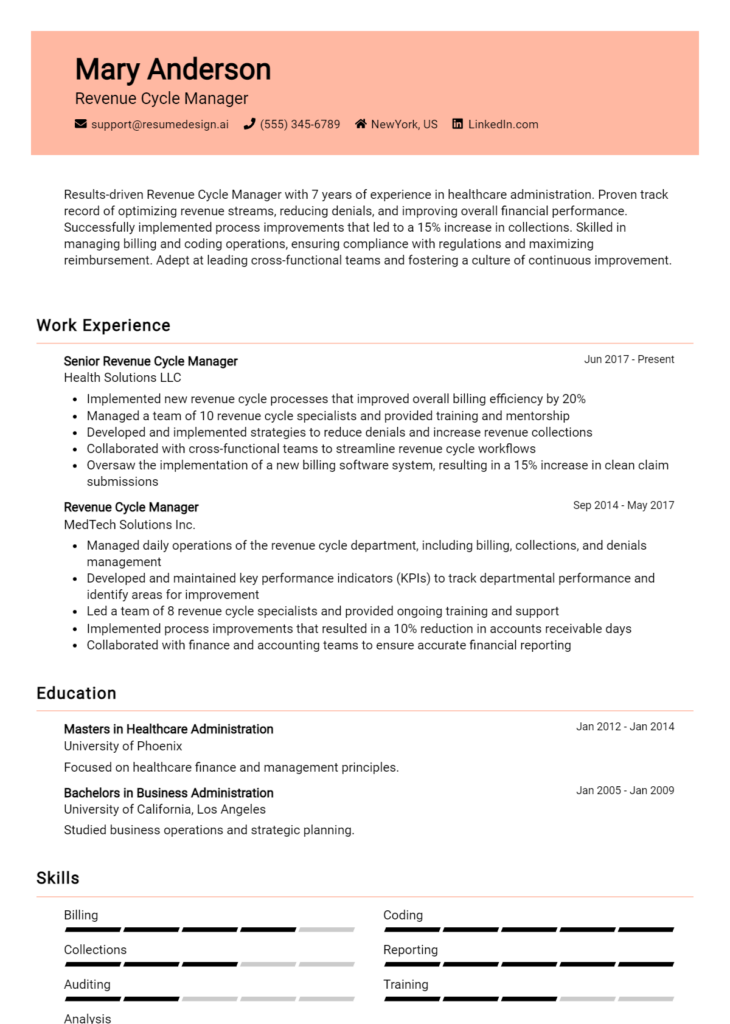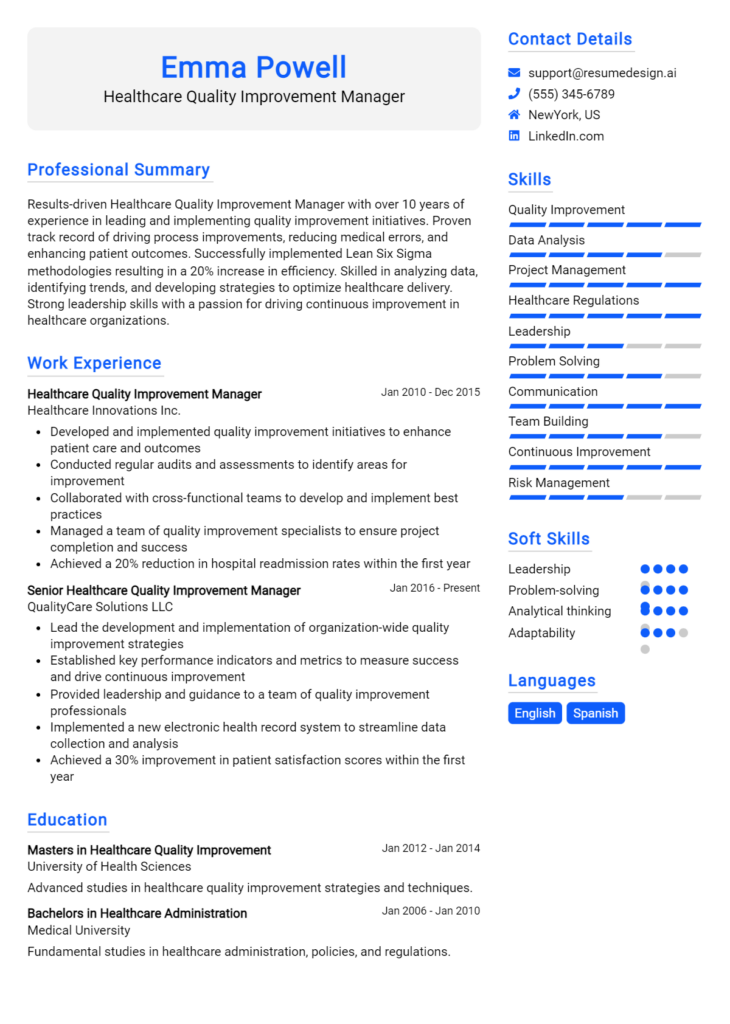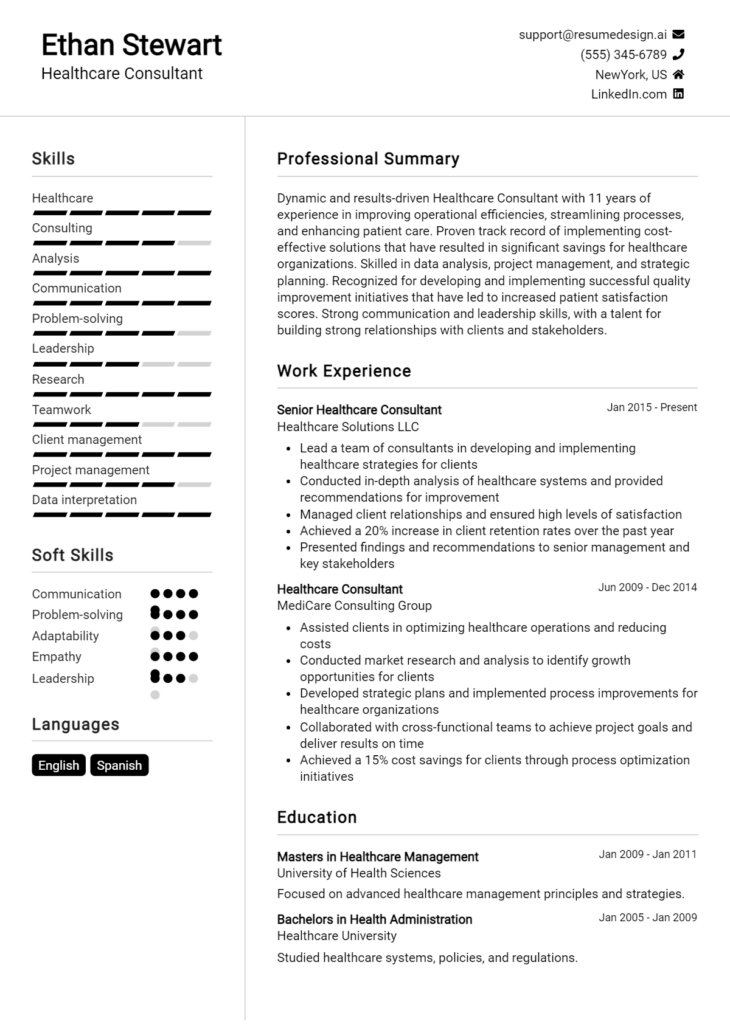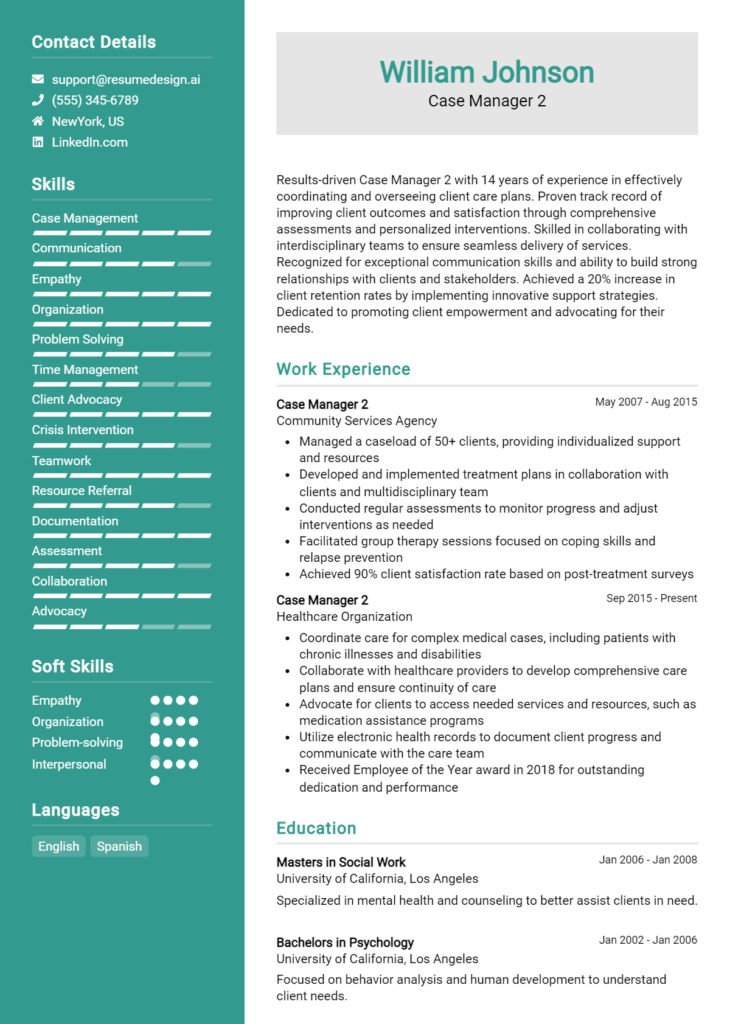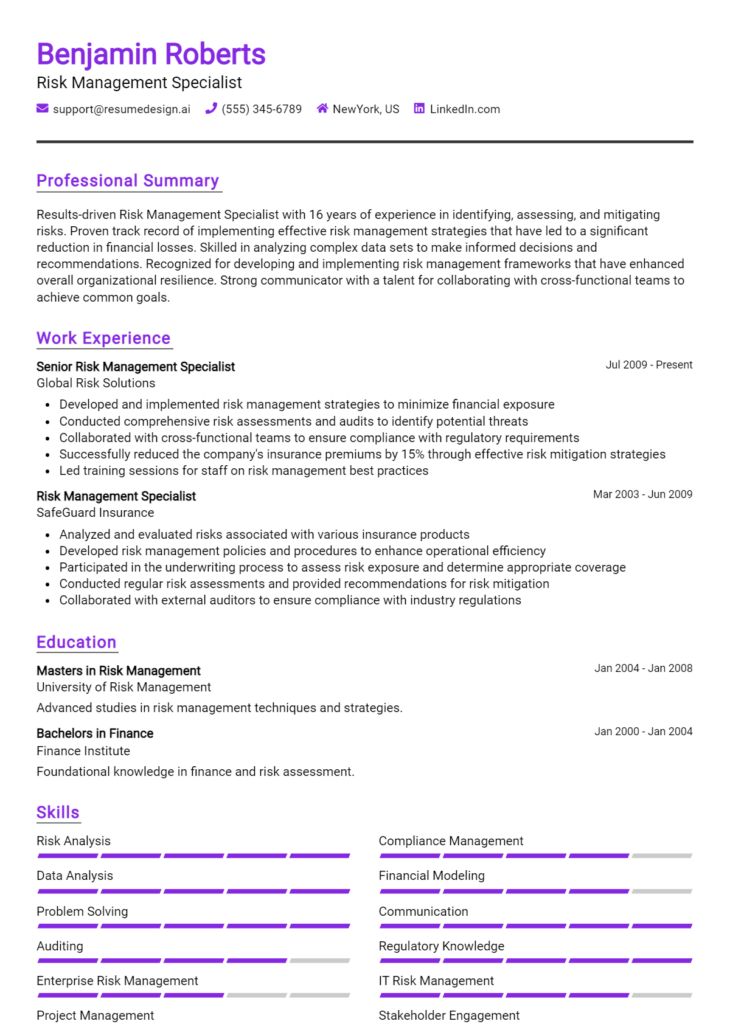Clinical Operations Manager Core Responsibilities
A Clinical Operations Manager plays a vital role in ensuring the efficiency and effectiveness of clinical trials and operations. Key responsibilities include overseeing trial management, coordinating between departments such as research, regulatory affairs, and quality assurance, and ensuring compliance with industry regulations. Essential skills encompass technical expertise in clinical protocols, operational oversight, and strong problem-solving abilities. Mastering these skills not only drives project success but also aligns with the organization’s strategic goals. A well-structured resume can effectively highlight these qualifications, showcasing the candidate's potential to contribute meaningfully to the organization.
Common Responsibilities Listed on Clinical Operations Manager Resume
- Oversee planning, implementation, and management of clinical trials.
- Ensure compliance with regulatory requirements and ethical standards.
- Collaborate with cross-functional teams to streamline operations.
- Monitor trial progress, timelines, and budgets.
- Develop and maintain standard operating procedures (SOPs).
- Conduct risk assessments and implement mitigation strategies.
- Train and manage clinical research staff.
- Analyze data to inform decisions and improve processes.
- Facilitate communication between stakeholders and sponsors.
- Prepare and present reports on clinical trial progress.
- Identify areas for improvement and implement solutions.
High-Level Resume Tips for Clinical Operations Manager Professionals
In the competitive field of clinical operations management, a well-crafted resume is not just a document—it's your personal marketing tool. For Clinical Operations Manager professionals, the resume often serves as the first impression made on potential employers, setting the stage for future conversations. It’s essential that this critical document reflects not only your relevant skills and experiences but also your significant achievements in the field. A compelling resume can open doors to interviews and career advancement opportunities. In this guide, we will provide practical and actionable resume tips specifically tailored for Clinical Operations Manager professionals, ensuring your application stands out among the rest.
Top Resume Tips for Clinical Operations Manager Professionals
- Tailor your resume to the specific job description, using keywords and phrases that align with the position's requirements.
- Highlight relevant experience in clinical trials, regulatory compliance, and project management to showcase your expertise.
- Quantify your achievements by including metrics, such as the number of projects managed or percentage improvements in efficiency.
- Include industry-specific skills, such as knowledge of Good Clinical Practice (GCP) guidelines and familiarity with clinical trial management software.
- Utilize a clear and professional format that enhances readability, making it easy for hiring managers to find key information at a glance.
- Add a summary statement at the beginning of your resume that encapsulates your qualifications and career objectives.
- Incorporate relevant certifications, such as Clinical Research Coordinator (CRC) or Clinical Research Associate (CRA), to bolster your credentials.
- Demonstrate leadership and team collaboration skills by providing examples of how you've led teams or worked cross-functionally.
- Keep your resume concise, ideally one to two pages, focusing on the most relevant and impactful information.
By implementing these tips, Clinical Operations Manager professionals can significantly increase their chances of landing a job in this dynamic field. A focused and polished resume that effectively showcases your skills and achievements not only captures the attention of hiring managers but also positions you as a strong candidate ready to contribute to successful clinical operations.
Why Resume Headlines & Titles are Important for Clinical Operations Manager
In the competitive field of clinical operations, a well-crafted resume headline or title holds significant importance for a Clinical Operations Manager. This concise statement serves as the first impression for hiring managers, encapsulating the essence of a candidate’s qualifications in a single, impactful phrase. A strong headline not only grabs attention but also effectively summarizes key skills and experiences relevant to the position, setting the stage for the rest of the resume. It should be direct, relevant, and tailored to the specific clinical operations role being applied for, positioning the candidate as an ideal fit for the job.
Best Practices for Crafting Resume Headlines for Clinical Operations Manager
- Keep it concise—aim for one impactful sentence or phrase.
- Use role-specific terminology to demonstrate industry knowledge.
- Focus on key skills or accomplishments that align with the job description.
- Avoid vague language; be specific about your expertise.
- Incorporate measurable outcomes where possible to showcase achievements.
- Use strong action verbs to convey confidence and capability.
- Tailor the headline to match the specific requirements of each job application.
- Stay clear of clichés; aim for originality to stand out.
Example Resume Headlines for Clinical Operations Manager
Strong Resume Headlines
Results-Driven Clinical Operations Manager with Over 10 Years of Experience in Streamlining Processes and Improving Patient Outcomes
Strategic Clinical Operations Leader Specializing in Regulatory Compliance and Cross-Functional Team Management
Dynamic Clinical Operations Manager with Proven Success in Leading Multisite Clinical Trials and Enhancing Operational Efficiency
Innovative Clinical Operations Professional with a Track Record of Reducing Costs by 20% While Increasing Patient Satisfaction
Weak Resume Headlines
Experienced Manager Seeking New Opportunities
Clinical Operations Professional Looking for a Job
The strong headlines are effective because they clearly communicate specific skills, experiences, and achievements that resonate with the expectations of hiring managers in the clinical operations field. They are tailored to highlight the candidate's strengths while directly relating to the job’s requirements. In contrast, the weak headlines fail to make an impact due to their vagueness and lack of specificity. They do not provide any meaningful insight into the candidate’s qualifications, making it difficult for hiring managers to see the value they bring to the table.
Writing an Exceptional Clinical Operations Manager Resume Summary
A well-crafted resume summary is essential for a Clinical Operations Manager as it serves as the first impression to hiring managers. This brief overview allows candidates to highlight their most relevant skills, experiences, and accomplishments, effectively capturing the attention of those reviewing applications. A strong summary is concise and impactful, providing a snapshot of the candidate's qualifications in relation to the specific job they are applying for. By tailoring the summary to reflect the needs of the position, candidates can significantly increase their chances of standing out in a competitive field.
Best Practices for Writing a Clinical Operations Manager Resume Summary
- Quantify Achievements: Use numbers and percentages to showcase your impact on projects or initiatives.
- Focus on Relevant Skills: Highlight key skills that align with the job description, such as project management, regulatory compliance, or team leadership.
- Tailor the Summary: Customize your summary for each application, ensuring it addresses the specific requirements of the job.
- Use Action-Oriented Language: Start with strong action verbs to convey your accomplishments dynamically.
- Keep It Concise: Aim for 3-5 sentences that succinctly summarize your qualifications without unnecessary detail.
- Highlight Industry Knowledge: Mention any relevant certifications or knowledge of industry standards and regulations.
- Demonstrate Leadership: Emphasize your experience in managing teams or projects to showcase your leadership capabilities.
- Include Soft Skills: Don't forget to mention interpersonal skills like communication, collaboration, and problem-solving, which are crucial in clinical operations.
Example Clinical Operations Manager Resume Summaries
Strong Resume Summaries
Results-driven Clinical Operations Manager with over 8 years of experience in streamlining clinical trial processes, achieving a 25% reduction in study timelines. Proven track record in regulatory compliance and team leadership, having successfully managed cross-functional teams of up to 30 members.
Dynamic Clinical Operations Manager skilled in project management and strategic planning, leading initiatives that improved patient recruitment by 35% while maintaining adherence to budget constraints. Expert in GCP and FDA regulations with a focus on enhancing operational efficiency.
Dedicated Clinical Operations Manager with a history of executing clinical trials across multiple therapeutic areas. Achieved a 40% increase in site activation rates by implementing innovative recruitment strategies and fostering strong relationships with key stakeholders.
Weak Resume Summaries
Experienced professional looking for opportunities in clinical operations management.
Clinical Operations Manager with some experience in overseeing trials and managing teams.
The examples of strong resume summaries stand out due to their specificity, quantifiable achievements, and direct alignment with the responsibilities of a Clinical Operations Manager. They demonstrate the candidate's impact through measurable results and relevant skills. In contrast, the weak summaries lack detail and fail to convey the candidate's unique qualifications or contributions, making them less compelling to hiring managers.
Work Experience Section for Clinical Operations Manager Resume
The work experience section of a Clinical Operations Manager resume is crucial as it serves as a powerful platform for candidates to demonstrate their technical skills, leadership abilities, and commitment to delivering high-quality products. This section not only showcases a candidate's previous roles and responsibilities but also emphasizes quantifiable achievements that align with industry standards. By articulating specific outcomes and contributions, candidates can effectively convey their capacity to manage teams and drive successful clinical operations, making it essential to present this information clearly and effectively.
Best Practices for Clinical Operations Manager Work Experience
- Highlight relevant technical skills, such as regulatory knowledge, data analysis, and project management.
- Quantify achievements with specific metrics, such as improved patient outcomes or reduced trial timelines.
- Use action verbs to convey leadership and initiative, such as "led," "developed," or "implemented."
- Focus on collaboration with cross-functional teams to demonstrate teamwork and communication skills.
- Tailor experiences to align with the job description and industry standards to enhance relevancy.
- Include any certifications or training that support your expertise in clinical operations.
- Present experiences in reverse chronological order to showcase the most recent and relevant roles first.
- Limit each bullet point to one or two lines for clarity and conciseness.
Example Work Experiences for Clinical Operations Manager
Strong Experiences
- Successfully led a team of 15 in a Phase III clinical trial, resulting in a 20% reduction in study timelines and a 30% increase in patient enrollment rates.
- Developed and implemented a new data management system that improved data accuracy by 25%, enhancing the overall quality of clinical outcomes.
- Collaborated with cross-functional stakeholders to streamline operations, resulting in a 15% cost savings while maintaining compliance with regulatory standards.
- Trained and mentored junior staff, fostering a collaborative team environment that led to a 40% increase in overall team productivity.
Weak Experiences
- Assisted with clinical trials as needed.
- Worked on various projects involving data management.
- Participated in team meetings and discussions.
- Helped improve operational processes.
The examples provided illustrate the difference between strong and weak work experiences. Strong experiences are characterized by specific, quantifiable outcomes and demonstrate a clear impact on clinical operations, showcasing leadership and technical expertise. In contrast, weak experiences lack detail and measurable results, making them less compelling to potential employers. By focusing on quantifiable achievements and well-defined roles, candidates can significantly enhance their appeal in the competitive field of clinical operations.
Education and Certifications Section for Clinical Operations Manager Resume
The education and certifications section of a Clinical Operations Manager resume is crucial as it underscores the candidate's academic achievements, relevant certifications, and commitment to ongoing professional development. This section serves to establish the foundational knowledge necessary for the role, showcasing how the candidate's educational background and specialized training align with the demands of clinical operations. By providing specific coursework, industry-recognized certifications, and evidence of continuous learning, candidates can greatly enhance their credibility and demonstrate their preparedness to excel in the field.
Best Practices for Clinical Operations Manager Education and Certifications
- Prioritize relevant degrees, such as a Master's in Public Health or a related field.
- Include industry-recognized certifications like Certified Clinical Research Coordinator (CCRC) or Clinical Research Associate (CCRA).
- List advanced training programs that emphasize clinical trial management or regulatory compliance.
- Provide details about relevant coursework, especially those linked to clinical operations or management.
- Highlight any continuing education efforts, such as workshops or seminars related to clinical operations.
- Ensure clarity and conciseness in formatting, making it easy to identify key qualifications at a glance.
- Include dates of completion for all certifications and degrees to show currency of knowledge.
- Tailor the education and certifications section to match the job description, emphasizing the most relevant qualifications.
Example Education and Certifications for Clinical Operations Manager
Strong Examples
- Master of Science in Clinical Research, University of XYZ, 2021
- Certified Clinical Research Associate (CCRA), Association of Clinical Research Professionals, 2022
- Advanced Certificate in Clinical Trial Management, ABC Institute, 2020
- Relevant Coursework: Biostatistics, Regulatory Affairs, and Clinical Trial Design
Weak Examples
- Bachelor's Degree in History, University of ABC, 2010
- Certification in Basic First Aid, Red Cross, 2015
- Online Course in Microsoft Office, 2019
- High School Diploma, XYZ High School, 2005
The strong examples are considered effective because they directly relate to the responsibilities and requirements of a Clinical Operations Manager, showcasing advanced education and industry-recognized credentials that enhance the candidate's profile. In contrast, the weak examples lack relevance to the role, featuring outdated or unrelated qualifications that do not contribute to the candidate's suitability for a position in clinical operations, ultimately diminishing their overall credibility in the eyes of employers.
Top Skills & Keywords for Clinical Operations Manager Resume
In the competitive landscape of clinical operations, having a well-crafted resume that highlights pertinent skills is crucial for standing out to potential employers. The role of a Clinical Operations Manager demands a unique blend of both hard and soft skills, reflecting the complexities of managing clinical trials, ensuring compliance, and leading diverse teams. An effective resume not only showcases these skills but also illustrates how they contribute to successful clinical outcomes and operational efficiency. By carefully selecting and emphasizing relevant skills, candidates can demonstrate their qualifications and readiness for the challenges of this dynamic role.
Top Hard & Soft Skills for Clinical Operations Manager
Soft Skills
- Leadership
- Communication
- Problem-solving
- Team collaboration
- Adaptability
- Time management
- Conflict resolution
- Critical thinking
- Emotional intelligence
- Strategic planning
Hard Skills
- Project management
- Regulatory compliance
- Clinical trial design
- Data analysis
- Budget management
- Quality assurance
- Risk management
- Vendor management
- Clinical research methodologies
- Technical proficiency in clinical software
For more insights on how to enhance your resume with the right skills, and to effectively present your work experience, consider tailoring your application to highlight these essential competencies.
Stand Out with a Winning Clinical Operations Manager Cover Letter
I am excited to apply for the Clinical Operations Manager position at [Company Name], as advertised on [Job Posting Source]. With over [X years] of experience in clinical operations and a proven track record of successfully managing clinical trials from inception to completion, I am confident in my ability to contribute to your team and support your mission of delivering high-quality clinical research. My strong background in project management, regulatory compliance, and cross-functional collaboration has equipped me with the skills necessary to excel in a dynamic environment like yours.
In my previous role at [Previous Company Name], I led a diverse team in overseeing multiple clinical trials, ensuring adherence to timelines, budget constraints, and regulatory standards. I implemented process improvements that increased operational efficiency by [X%], and collaborated with stakeholders to optimize study protocols. My attention to detail and proactive approach to problem-solving allowed us to identify potential issues early and develop actionable solutions, resulting in the successful completion of trials ahead of schedule. I have also cultivated strong relationships with investigators, vendors, and regulatory bodies, which I believe will be instrumental in fostering collaboration at [Company Name].
I am particularly drawn to this opportunity at [Company Name] because of your commitment to innovation and excellence in clinical research. I admire your recent initiatives in [specific project or value of the company], and I am eager to bring my expertise in clinical operations to help advance these efforts. My ability to lead teams, manage complex projects, and navigate regulatory landscapes aligns with your organization's goals, and I am enthusiastic about the possibility of contributing to impactful research that improves patient outcomes.
Thank you for considering my application. I look forward to the opportunity to discuss how my background, skills, and passion for clinical operations can benefit [Company Name]. I am excited about the prospect of joining your team and contributing to the important work being done in the field of clinical research.
Common Mistakes to Avoid in a Clinical Operations Manager Resume
When crafting a resume for a Clinical Operations Manager position, it's crucial to present a professional and polished image. However, many candidates make common mistakes that can undermine their chances of landing an interview. Below are some frequent pitfalls to avoid when creating your resume:
Vague Job Descriptions: Failing to provide specific details about your previous roles can leave hiring managers unsure of your actual responsibilities and achievements. Use concrete examples and metrics to illustrate your impact.
Neglecting Relevant Skills: Omitting critical skills related to clinical operations, such as project management, regulatory compliance, or data analysis, can make your resume less compelling. Tailor your skills section to reflect the requirements of the job.
Using Jargon or Technical Language: While industry-specific terminology can demonstrate expertise, overusing jargon can alienate hiring managers who may not be familiar with certain terms. Aim for clarity and accessibility in your language.
Ignoring Formatting Consistency: A resume that lacks consistent formatting—such as varying font sizes, styles, or bullet point styles—can appear unprofessional. Use a clean, uniform format to enhance readability.
Focusing on Responsibilities Instead of Achievements: Simply listing job duties does not convey your contributions effectively. Highlight specific accomplishments, such as improvements in patient outcomes or operational efficiencies.
Including Irrelevant Information: Adding personal details or unrelated work experience can distract from your qualifications. Keep your resume focused on experiences that are pertinent to clinical operations management.
Overloading with Information: A cluttered resume can overwhelm readers. Aim for brevity by summarizing your experience and qualifications in a clear, concise manner, ideally keeping the length to one or two pages.
Neglecting to Tailor the Resume for Each Application: Sending out a generic resume can diminish your chances of capturing attention. Customize your resume for each job application, aligning your experiences with the specific requirements of the role.
Conclusion
As we explored the essential responsibilities and skills required for a Clinical Operations Manager, it’s clear that this role is pivotal in ensuring the success of clinical trials and the overall efficiency of clinical operations. We discussed the importance of strategic planning, team leadership, regulatory compliance, and risk management, all of which contribute to the advancement of clinical research.
Additionally, we highlighted the need for strong communication skills, data analysis capabilities, and a thorough understanding of clinical protocols and procedures. A successful Clinical Operations Manager must also be adept at problem-solving and possess the ability to navigate the complexities of clinical environments.
Now that you have a comprehensive understanding of what it takes to excel in this role, it’s time to ensure your resume reflects your qualifications and experiences effectively. Take a moment to review your Clinical Operations Manager resume and consider how you can enhance it to stand out in a competitive job market.
Utilize the available resources at your disposal! Explore our resume templates to find a design that suits your style, or try out our resume builder for an easy and efficient way to construct your document. Check out our resume examples to gain inspiration from successful candidates, and don’t forget to create a compelling introduction with our cover letter templates.
Take action today and make your resume a powerful tool in your job search!

